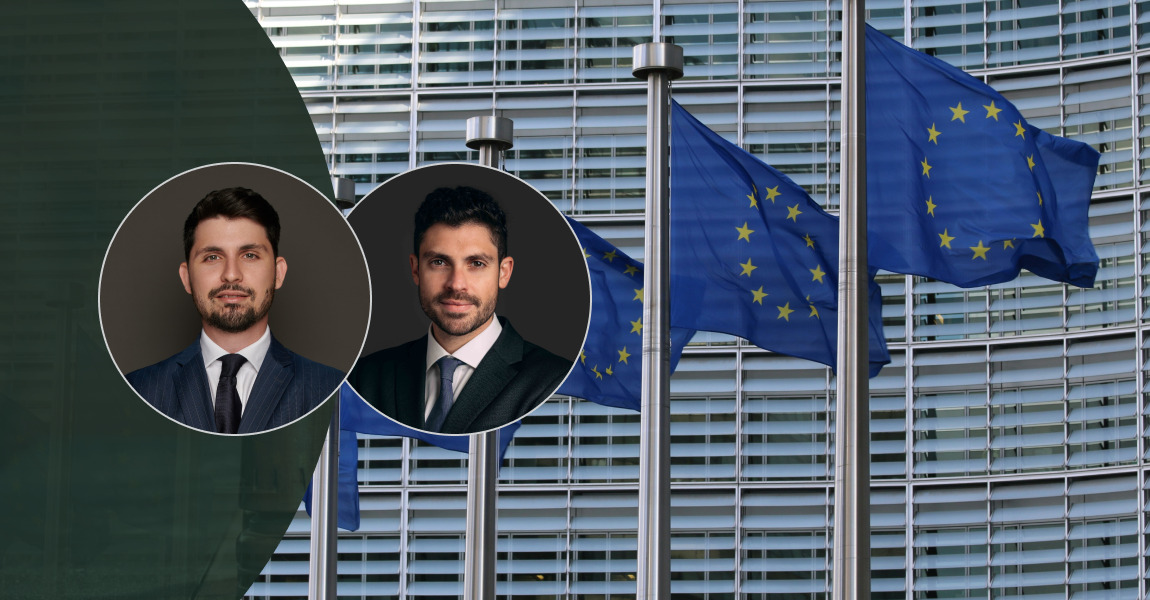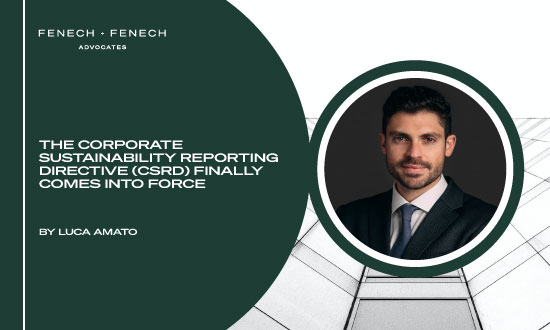
Partner Thomas Bugeja and Senior Associate Luca Amato, from our Corporate & Commercial Department, have recently co-authored an article discussing the Foreign Subsidies Regulation and its implications on M&A transactions and public procurement. The FSR has created a new competition regime addressing financial contributions made by non-EU governments to private entities. The aim of the FSR is to allow the EU to remain open to foreign trade and investment whilst ensuring a level playing field throughout the internal market.
The Foreign Subsidies Regulation and its implications on M&A transactions Background to the Regulation
Regulation (EU) 2022/2560, referred to as the Foreign Subsidies Regulation (“FSR”), entered into force on 12 July 2023. The FSR has created a new competition regime addressing financial contributions by non-EU countries (so-called “foreign subsidies”) made to private entities that have the potential of distorting the EU internal market. The aim of the FSR is thus to allow the EU to remain open to foreign trade and investment whilst ensuring a level playing field throughout the internal market.
EU member states are bound by state aid regulations. The need to implement the FSR evolved as, throughout the years, foreign subsidies from third countries appear to have distorted the EU’s internal market, allowing private companies benefiting from such subsidies and operating in the EU to gain a competitive advantage within the internal market. For example, airline companies from the Gulf states operating in the EU have benefitted from subsidies advanced by their non-EU home countries, giving them a competitive advantage over airlines registered in EU Member states operating within the limitations imposed by EU state aid law.
The FSR gives the European Commission (“EC”) the authority to investigate direct or indirect financial contributions granted by non-EU governments, or by entities affiliated to a non-EU government, to companies that operate, are active or are seeking to become active in the internal market. The definition of “financial contribution” in the FSR is very broad and covers any contribution attributable to a non-EU government, even if this is granted according to market terms. Examples include grants, capital injections, loans, tax incentives, credits, and also funds paid by non-EU governments for the purchase or supply of goods and services. If it finds that such financial contributions constitute distortive subsidies, the EC has the power to impose measures to redress distortive effects.
As of 12 October 2023, companies engaging in 1) M&A activity or 2) public procurement procedures triggering the thresholds established in the FSR are bound to submit a so-called Form FS-CO or Form FS-PP respectively, and await approval from the EC.
A Form FS-CO is required where an acquisition of ‘control’ is envisaged in a prospective M&A transaction, the target group has generated an EU turnover of €500+ million in the preceding financial year, and the acquirer and/or target group have received foreign subsidies of at least €50 million in the three years prior to the transaction. The aforementioned mentioned criteria are cumulative and it should be noted that the FSR adopts the same definition and methodology in assessing a change in ‘control’ as is found in Regulation (EC) 139/2004 on the control of concentrations between undertakings.
A Form FS-PP is required to be submitted by a company if it engages in public tenders in the EU, where the contract value is at least €250 million, and where the bidding party benefitted from one or more non-EU subsidies of not less than €4 million per non-EU country in the three years prior to the tender submission.
In addition to the above, the EC has the power to investigate all other market situations and commence reviews on its own initiative. If the EC suspects the existence of distortive subsidies, it also has the power to request an ad hoc notification for M&As and public procurement procedures, regardless of whether they meet the aforementioned thresholds or not. To assist its investigations, the EC can gather information by issuing information requests, conducting interviews and dawn raids both within and outside the EU.
In the event that the EC determines that a financial contribution has given rise to a subsidy (i.e. a benefit which would not represent normal market conditions) and that this has a distortive effect on competition, the EC can impose a broad range of remedies such as requiring divestment or access remedies, reimbursement of the subsidy and even blocking of the transaction outright.
Finally, if companies breach their obligations by failing to notify a notifiable concentration or public procurement, the EC may impose a fine up to 10% of their aggregate turnover in the preceding financial year. In addition, the EC may impose fines up to 1% of the global turnover and periodic penalty payments not exceeding 5% of the average daily aggregate turnover of the undertakings concerned in the preceding financial year, for each working day of delay, where such undertakings supply incorrect, incomplete, or misleading information.
The implications of the FSR on corporate M&A and private equity transactions
Considering all of the above, the provisions of the FSR are particularly relevant to lawyers working in the fields of corporate M&A and private equity. Indeed, the FSR will have several implications across the various stages leading to the closing of a deal and it would thus be prudent for both sell-side and buy-side advisors to acquaint themselves with such implications.
For example, at the outset, and particularly for sellers adopting an M&A auction strategy where the target group has more than €500 million in turnover, it would be prudent for bid process/procedure letters to require bidder-buyers to disclose whether they (or their group) have received any financial contributions from non-EU governments in the three years preceding the prospective transaction. This information is pertinent for the sellers as it might influence their decision on whether to entertain negotiations with a particular buyer. Put differently, sellers might not want to have dealings with prospective buyers who have received subsidies by non-EU governments or to face the prospect of a lengthy notification process with the EC, particularly if they are looking to sell with urgency. In this sense, the FSR could thus impact the competitiveness of the prospective bidder-buyer.
Similarly, at due diligence stage, requests for information by prospective buyers ought to be widened to include the same information (i.e. whether the target company or their group have received any financial contributions from non-EU governments in the three years preceding the prospective transaction) so that potential buyers can be advised in advance that a notification in terms of the FSR will be required.
The provisions of the FSR will also likely impact the drafting of share purchase agreements going forward. Closing conditions will need to include an additional condition precedent, namely that where a notification to the EC is required in terms of the FSR, completion of the transaction is subject to notification to the EC under the FSR and a determination by the EC that the financial contributions in question will not have a distortive effect on competition in the internal market. To the extent that the EC imposes remedies such as divestment or access remedies, reimbursement of the subsidy or outright blocking of the transaction, the share purchase agreement should duly regulate such eventualities.
Similarly, buyer and seller covenants should be updated to include undertakings such as “hell or high-water clauses”. Such clauses are typically included in the event where competition or FDI approval is required, but these should be widened to also cater for instances where a notification in terms of the FSR is required. (In an M&A context, “hell or high-water” clauses typically require one or both parties to take “all necessary steps” to obtain approvals, cooperate with authorities etc. In this way, “hell or high water” provisions bind the parties to take the necessary effort and actions in furtherance of obtaining regulatory approvals).
Regarding representations and warranties, these should also be updated to include undertakings that are pertinent to the provisions of the FSR. For example, where buyers and sellers have not received any financial contributions by non-EU governments in the three years preceding the transaction, a statement to this effect should be included. Such representations should be included also where the target group’s revenues fall under the thresholds stipulated in the FSR, since as discussed above the EC can still investigate transactions on its own initiative where thresholds aren’t met. To the extent that a buyer or seller has received financial contributions, then these should be duly disclosed in the SPA disclosure letter, in the due diligence pack or in other similar documentation.
Finally, pre-completion undertakings/restrictions (i.e. actions which the sellers and buyers may or may not take in the interim period between signature of the share purchase agreement and completion) should also be widened so as to prohibit any further financial contributions by non-EU governments.



